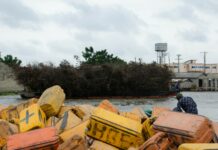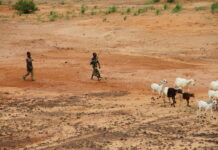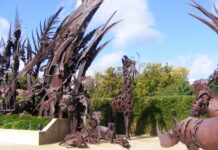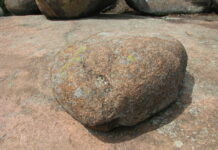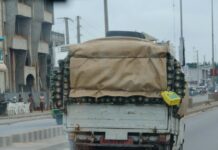Photo credit: DiasporaEngager (www.DiasporaEngager.com).
The DA circa 2019 was trying to out-ANC the ANC, playing the dangerous game of identity politics rather than setting out an alternative stall
By Mat Cuthbert
I respect Peter Bruce’s analysis and insights, whether it be his weekly column in Business Day or the Sunday Times. We agree on many policy matters, economic policy in particular. However, how often he gets it wrong when dispensing political advice never ceases to amaze me.
It started with his endorsement of Bantu Holomisa’s UDM in the 1999 general election and, more recently, in 2019, his endorsement of President Cyril Ramaphosa’s ANC, which led to the “Ramaphoria” hysteria that consumed the chattering classes until they realised that they were manipulated into believing that the ANC had reformed itself.
The latest is his defence of former colleague and leader of Rise Mzansi, Songezo Zibi, who has raised many eyebrows on critical policy issues, such as the expropriation of land without compensation, defending the ANC’s version of BEE, and expressing a commitment to racial targets in hiring practices.
In last week’s missive, he argued that the “DA risks the race by ignoring race”, opining that the DA got it wrong by reverting to its core liberal principle of nonracialism. Having been in the party during our “identity crisis” and enduring the continuous flip-flopping under the erstwhile leadership, I am confident we made the right decision.
The DA circa 2019 was trying to out-ANC the ANC, playing the dangerous game of identity politics rather than setting out an alternative stall that offered credible solutions to the issues affecting ordinary South Africans, such as crippling unemployment, rolling blackouts, and violent crime. This is why we were punished at the polls, and it called for deep introspection in the party. And introspect we did. It required many difficult conversations, acknowledging our failures, and recommitting to our values, which had guided our predecessor parties over the past 65 years.
Fast-forward four or so years, and the DA is in a far better place than it was. We have made much progress in revitalising our internal structures, refreshing our policy suite, and delivering a clear message to voters. This is why all publicly available polling demonstrates that the DA is in a far stronger position electorally today than it was when we garnered only 20.77% of the vote in 2019. These polling numbers would not be possible without increased support among black voters. Therefore, it is patently untrue to argue that our nonracial policies have cost us electorally.
It is possible to both acknowledge the effects our country’s painful past has had on black South Africans and acknowledge that decades of race-based policies have failed to address these effects. Our policies do precisely that. We focus on uplifting the vulnerable, closing the inequality gap, and creating opportunities for all.
I find it patronising to assume that it is OK to ascribe emotions, thoughts, and actions to someone based on their skin colour — as if they are devoid of any individual agency. Data reveals that across the racial spectrum, people are tired of the ANC-induced misery they have been subjected to and are looking for an alternative that can deliver on the basics, such as job creation, a stable electricity and water supply, and living without the constant fear of being a victim of violent crime.
To his credit, Bruce at least acknowledges the DA’s track record in government: “It is worth saying that where it is in government, it makes a difference for the better. From public services to job creation, it’s a fact.”
I argue that this is indeed what matters to voters, and it is simply reductionist to assume that South Africans are merely envoys of their race and unable to vote in favour of their interests. If the ballot box reflects the polling, the DA will be the only established party that grows after May 29. We will undoubtedly bring the ANC below 50%, and we will likely be able to govern both Gauteng and KwaZulu-Natal as the largest partner in a multiparty charter government. This is just five years after our party suffered its most significant electoral setback.
As a policy wonk, I am not one for clairvoyance or soothsaying; I take my lead from the evidence. Therefore, to suggest that the DA will be confined to 20%-25% of the vote for the next century is speculative at best and hyperbolic at worst. All available evidence points to the fact that where we govern well, our policies improve the living standards of all residents and, over time, this results in increased levels of support for the DA. The Western Cape has the highest human development index score of 0.769 (a composite indicator of development, including education levels, life expectancy, and per capita income) compared with the ANC-run Gauteng and KwaZulu Natal, which scored 0.752 and 0.671, respectively.
Peter, we have a country to rescue from the brink of collapse. Our shared interests as a nation, black and white, compel us to work together to achieve this. In the spirit of pragmatism, I leave you with Chinese reformer Deng Xiaoping’s infamous quip: “It doesn’t matter if a cat is black or white, as long as it catches mice.”
Source of original article: Democratic Alliance (content.voteda.org).
The content of this article does not necessarily reflect the views or opinion of Global Diaspora News (www.GlobalDiasporaNews.com).
To submit your press release: (https://www.GlobalDiasporaNews.com/pr).
To advertise on Global Diaspora News: (www.GlobalDiasporaNews.com/ads).
Sign up to Global Diaspora News newsletter (https://www.GlobalDiasporaNews.com/newsletter/) to start receiving updates and opportunities directly in your email inbox for free.




